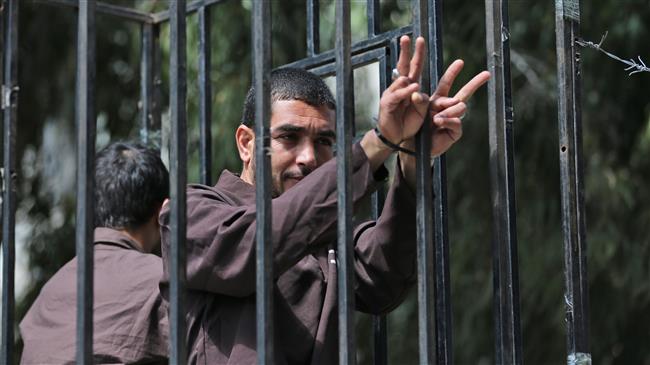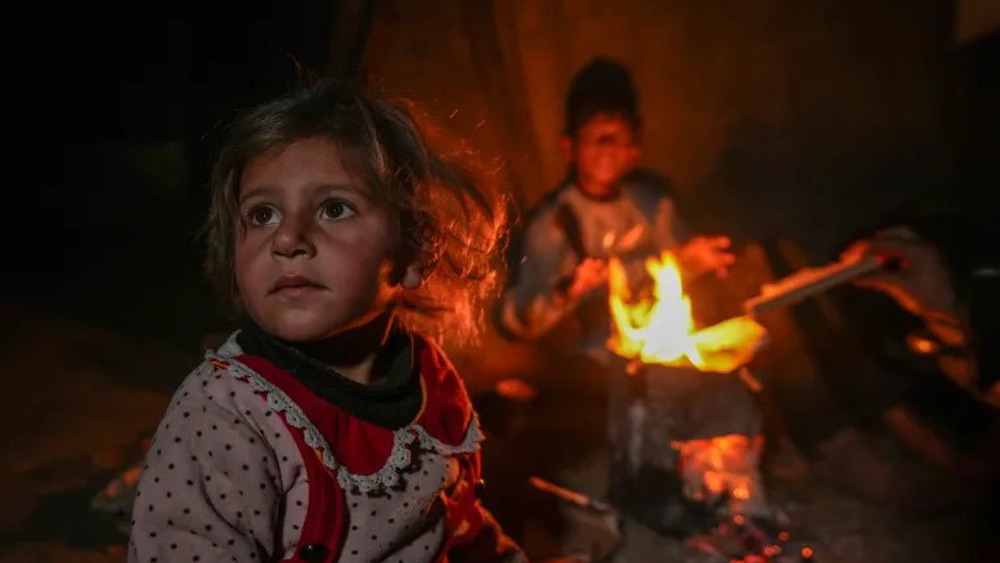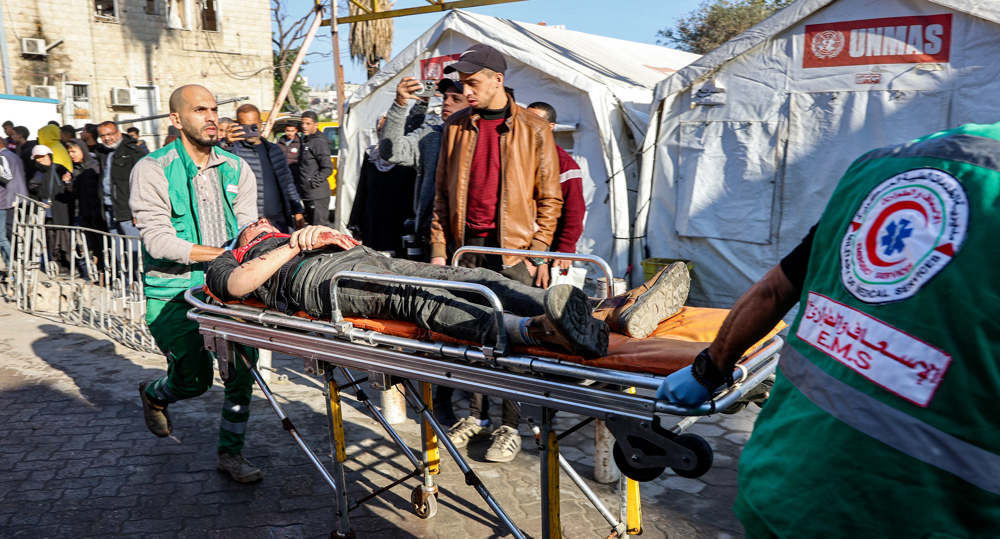Palestinian political prisoners abused by Israel during COVID-19
By Robert Inlakesh
Whilst the United States calls upon countries such as Iran, to release more prisoners from its jails during the COVID-19 pandemic, Israel, the US’s self-described closest ally is yet to release a single Palestinian political prisoner.
Whilst inside of Israel itself, the regime has decided to temporarily release hundreds of prisoners, with around 400 expected to be released under the pretext of COVID-19, it is yet to grant this right to Palestinians. Around 5,000 Palestinian political prisoners are currently being held inside of Israeli military prisons, of which all have not committed a crime worthy of their sentence, or administrative detention, under international law. Of those imprisoned, around 700 are either injured, ill or have serious chronic illnesses, many of them suffering from medical neglect, according to human rights group Addameer.
The United States continues to pressure countries like Iran to release their prisoners, however Iran in the first week alone of the outbreak reportedly released tens of thousands of prisoners in an effort to tackle the virus. Israel on the other hand, has an apartheid model where even illegal Israeli settlers in the occupied West Bank are under Israeli law, whilst Palestinians who inhabit the same territory are ruled by an occupation force under military law and are locked away in Palestinian only military prisons.
Most Palestinian political prisoners are arrested and remain inside of Israel’s torturous military prisons for the non-crime of throwing stones, which can land even a child in prison for up to 20 years. Even if a Palestinian child throws a stone, without the intent to injure Israeli occupation forces, they can get a prison sentence of up to ten years. There are currently around 200 Palestinian children being held in Israeli military prisons, as of this year, including some as young as 14 years of age. The detention of these Palestinian minors is a flagrant violation of International Law.
During the coronavirus pandemic, Israel has, according to reports, continued to practice various forms of torture against Palestinian detainees. Israel has also made it impossible for Palestinian prisoners to have visits from family members inside of its jails, seemingly the only place that social distancing seems to apply for Palestinians. Arrest campaigns have also been ongoing in the West Bank, despite the pandemic and global call from the UN for ceasefire. This ceasefire has been repeatedly violated by Israel, especially in the occupied territories. Israel has even bombarded the Gaza strip, fired chemical gas and live ammunition at farmers and continued to launch mock raids against those who it denies key medical equipment.
Reports from last month, in March, indicated that a number of Palestinians held inside of Israel's military prisons were preparing to go on hunger strike over the lack of precautionary measures taken inside of the prisons, in order to protect inmates from contracting COVID-19.
Ex-prisoner Nour al-Deen Sarsour, from the West Bank village of Betuinia, recently tested positive after being released from prison, indicating that those who he was in contact with in jail may have also been exposed to the virus. Yet Israel continues to ignore the WHO guidelines, set out to prevent the spread of the virus inside of its illegally run prisons.
The situation is so severe that 18 different Human Rights Groups signed onto a joint statement, addressing Israel’s criminal actions towards dealing with the spread of COVID-19 amongst Palestinian political prisoners.
What has been happening inside the prisons is however, not the only problem when it comes to Israel’s actions on this front. Night raids, large scale arrest campaigns and house invasions are still all ongoing issues and haven’t been ended/postponed during the Pandemic. Israel still continues to detain Palestinians, often illegally binding their hands, blindfolding them and beating them, then not allowing them access to lawyers during rounds of interrogation.
Today marks the annual Palestinian prisoners day, where the people of Palestine reflect and turn their efforts and attention towards those held illegally by the Israeli regime. Today the rest of the world should also stand united with the Palestinian people, especially during the current circumstances.
If there was ever a time when people were to come together; that time would be now. Israel however still treats Palestinians as subhuman, so the question to the rest of the world is, do you also view the Palestinians this way, or is it time we all make some noise for those suffering inside of Israeli military dungeons.
Robert Inlakesh is a journalist, writer and political analyst, who has lived in and reported from the occupied Palestinian West Bank. He has written for publications such as Mint Press, Mondoweiss, MEMO, and various other outlets. He specializes in analysis of the Middle East, in particular Palestine-Israel. He also works for Press TV as a European correspondent.
(The views expressed in this article do not necessarily reflect those of Press TV.)
‘All wars have rules. All of those rules have been broken’ by Israel
VIDEO | Report flags India’s violation of rights of Rohingya detainees
Turkey's foreign minister meets Syria's de facto leader in Damascus
'Next to impossible' to rescue patients from Gaza's Kamal Adwan Hospital: Director
VIDEO | Vietnam current prosperity
Report blames gasoil exports for shortage at Iranian power plants
VIDEO | Hind Rajab Foundation names Israeli war criminals vacationing after Gaza genocide
VIDEO | Australians rally for Gaza ahead of Christmas festivities










 This makes it easy to access the Press TV website
This makes it easy to access the Press TV website